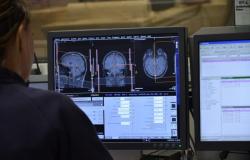In Lazio alone, there are 400,000 elderly people who are alone. Many, many of them, need assistance. Which, often, they struggle to find or have. And it is enough to do calculations and projections, as Nuova Collaborazione, the national association of domestic workers, has done, to understand that if there are 117,500 housekeepers and carers, admitting that these two professions are also useful to other families in the Region (and not only, precisely, to elderly people who are alone), in fact at least 300,000 would be missing from the roll call. And among these, the black economy is very high: people who go to work at home but do not receive the contributions that they are entitled to.
Rome, free swimming pools for over 70s: how and where to book. The Municipality’s initiative for the Warm Plan
CHANGE
The situation – Nuova Collaborazione points out – has worsened in the post-pandemic period because during the lockdown there was a large emergence of irregular work precisely to allow housekeepers and carers to have permits to go and provide their services. Today, however, we have gone backwards. The numbers come from an elaboration made on the INPS data on work at home, divided on a regional basis. In 2023 in Lazio, domestic workers were, as mentioned, 117,500, a decrease of 4.5% compared to 2022. A sharp turn that according to the experts would be due precisely to the return to the old habits of the employment relationship with a “handshake”, also because the population is increasingly aging and families are increasingly in need of people able to help. The decline has also occurred at a national level. Suffice it to say that last year (again according to the INPS Observatory on domestic work in Italy) the contributing family collaborators were 833,874, with a decrease compared to 2022 equal to -7.6%. A phenomenon that clashes, however, with the increases that were seen in the two-year period between 2020 and 2021.
«The domestic worker has become central in the organization of care work, the home and the family, left alone in the management of non-self-sufficient loved ones, without structural and lasting welfare policies to support him, explains Alfredo Savia, president of Nuova Collaboration – it is necessary to develop specific programs and guarantee long-lasting fiscal aid which, on the one hand, brings undeclared work to light and, on the other, allows families not to be the only person responsible for managing the home, caring for children children, elderly parents and non-self-sufficient people”. To support the emergence of the black economy, Nuova Collaborazione asks to include the world of domestic workers and carers in the Government’s measures to support new hires. «We warmly welcome the maxi tax deduction, foreseen by the Irpef reform, approved by the Government, whose implementing decree has been published on the website of the Department of Finance, which concerns permanent hiring. An important benefit which represents a significant step to support employment – comments Filippo Breccia Fratadocchi, vice-president of the association – We cannot, however, help but express our regret in seeing, once again, the domestic work sector excluded from this type of intervention, despite the fundamental role played in managing the family’s care work and despite the family itself representing a small business. Families who hire domestic staff are to all intents and purposes employers and should therefore take advantage of the benefits that apply to other sectors, at least when they need assistance for non-self-sufficient people”.
© ALL RIGHTS RESERVED
© ALL RIGHTS RESERVED
Read the full article on
The messenger






